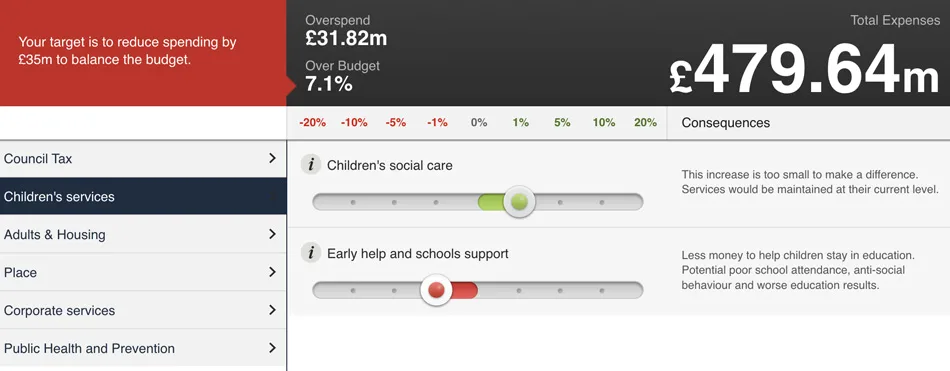Dorset residents are being invited to try their hand at balancing the county’s books through a new online simulator launched by Dorset Council this week.
The interactive tool, available until 2nd December, lets users adjust spending across key services – from social care and road maintenance to libraries, housing and waste collection – to see how difficult it is to meet the council’s £479 million budget.

Councillor Simon Clifford, cabinet member for finance and capital strategy, said: ‘Setting a balanced budget is one of the most difficult tasks we face as councillors. Dorset’s older population means we have higher demand for adult social care, and our rural geography adds cost to delivering services. This simulator gives residents a chance to see the reality behind the headlines – it’s all about trade-offs and choices, listening to residents about what they want and need.’
The simulator lays out the challenge starkly. Users are told the council must reduce spending by £35 million to balance its books. Every reduction brings visible consequences – from slower pothole repairs to less support for vulnerable children, from increased flooding risks to reduced library hours. Councillor Nick Ireland, leader of the Council, said: ‘As with many councils, we are under growing financial pressure, with adult and children’s social care services facing the greatest challenges. But as a rural authority we have also been chronically underfunded by government for years. This means we are far more reliant on raising our income from council tax than urban councils.’
The simulator, he added, is intended to open up that discussion: ‘This not only gives residents the chance to explore the reality of budget-setting but also helps us understand what matters most.’
However, not everyone is convinced. One resident who tried the tool got in touch with The BV to say it feels ‘weighted to make you sympathise with the council, rather than understand the broader picture’.
The simulator highlights the negative consequences of every cut – fewer pothole repairs, reduced social care, slower flood maintenance – but offers no sense of how investment or efficiency changes might lead to future savings.
‘It could have been a fascinating exercise in transparency,’ they said. ‘Instead it feels like a nudge to throw up your hands and say “poor council, what a tough job they have”. Real decision-making is about innovation and nuance as well as reduction – not just choosing what to chop.’
The council stresses that this is not a formal consultation or a vote, but an engagement exercise designed to gauge public priorities. The results, it says, will inform future decisions as councillors prepare the 2026–27 budget.
The simulator takes around 10–15 minutes to complete and can be accessed at simulator.dorsetcouncil.gov.uk.


